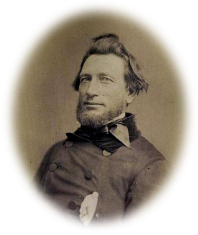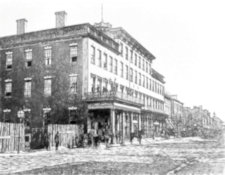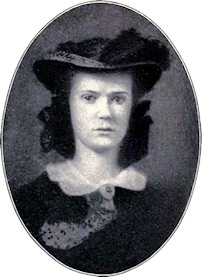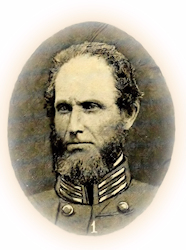August 31, 1862, The New York Herald
This sterling officer, whose series of military operations and brilliant victories in the West have been the theme of praise and comment from press and public, is comparatively a young men, being under forty years of age, having been born in Kentucky, March 10, 1923. His parents early settled at Kaskaskia, Illinois, from which State he was appointed to West Point in 1838. His father, Hon. N. Pope, was for a long period United States District Judge of Illinois, a sound and talented lawyer, high toned and honored member of society, and eminently worthy of such a son as is the subject of this sketch. After a scholastic term of four years at the military institution, young Pope graduated in June, 1842. In his class we find the names of Generals Rosecrans, Seth Williams, Doubleday, and may others of the Union army, and Rains, G. W. Smith, Lovell, Van Dorn, Longstreet and others in the rebel ranks. In July, 1842, the subject of our sketch was appointed Second Lieutenant of Topographical Engineers. In August, 1846, he joined General Taylor’s army in Mexico, during its advance upon Monterey, and was brevetted first lieutenant for gallant and meritorious conduct in that battle. As first lieutenant he marched with his companions through the malarious regions of Central Mexico, and was an active participant in the severely fought and dearly bought battle of Buena Vista, where he was again brevetted captain for highly gallant and meritorious conduct. For his gallantry in this engagement, and other distinguished services during the war, he was also presented with a magnificent sword by the State of Illinois.
In 1849 he conducted the exploring expedition which first laid open the fertile regions of Minnesota, and demonstrated the practicability of navigating the Red River of the North with steamers, for which services he received a vote of thanks from the Territorial Legislature of Minnesota. This labor accomplished, we next find him serving in New [continue reading…]










